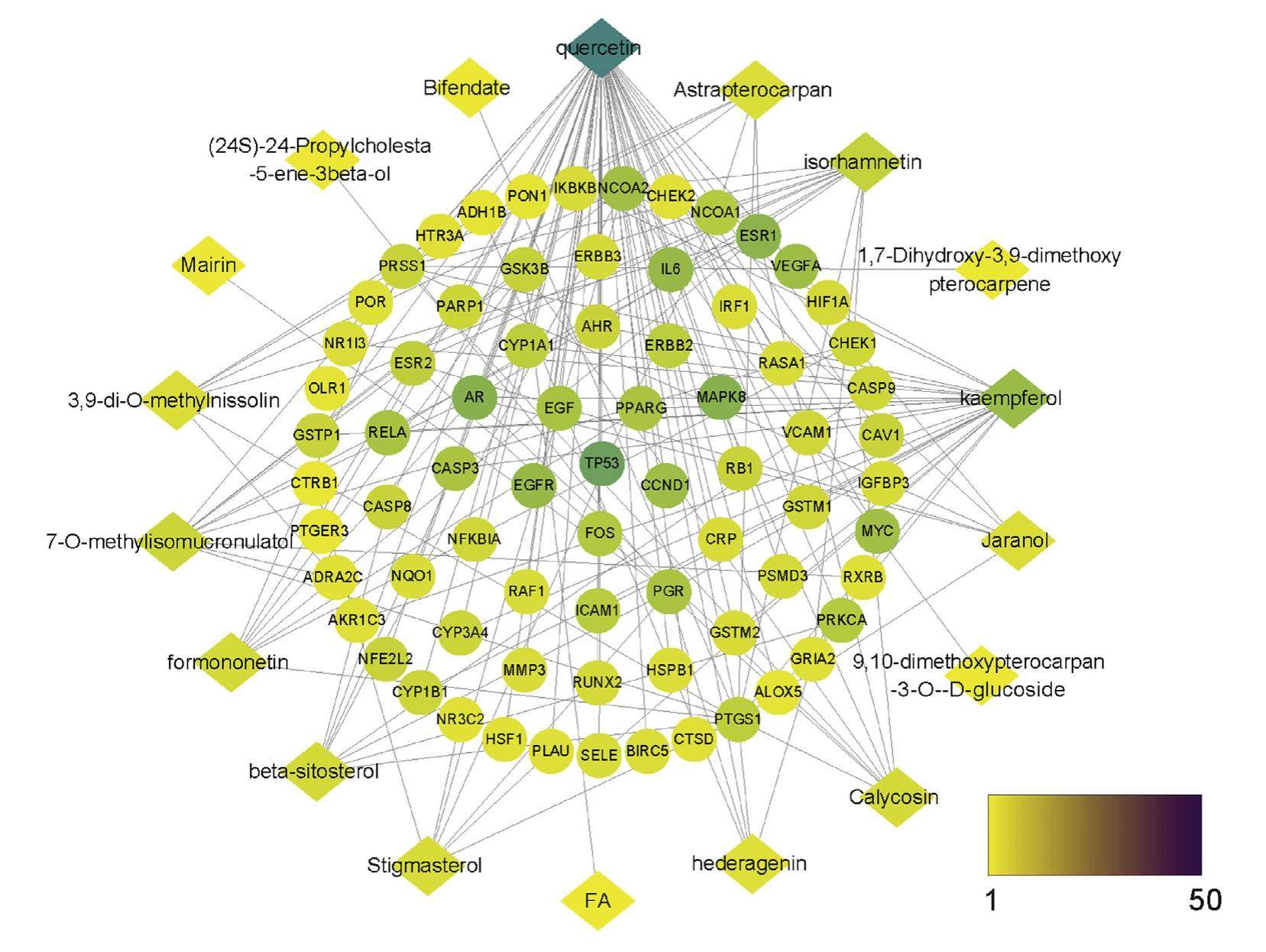
Chinese herbal decoction astragalus and angelica exerts its therapeutic effect on renal interstitial fibrosis through the inhibition of MAPK, PI3K-Akt and TNF signaling pathways


Astragalus and Angelica decoction (A&A) has been clinically used as a classical traditional Chinese medicine (TCM) formula in China for many years for the treatment of kidney diseases, especially renal interstitial fibrosis (RIF). However, the mechanisms underlying the therapeutic effects of A&A on RIF remains poorly understood. In the present study, systematic network pharmacology and effective experimental verification were utilized for the first time to elucidate the pharmacological efficacy and potential mechanism. The outcomes indicated that 22 active components and 87 target genes of A&A were identified and crossreferenced with RIF-associated genes, contributing to confirmation of 74 target genes of A&A for RIF. Pathway and functional enrichment analyses revealed that A&A had substantial effects on MAPK, PI3K-Akt and TNF signaling pathways. In addition, seven core targets with relatively higher betweenness and degree were identified in the constructed Chinese medicine material-chemical component-target-signal pathway network. Moreover, we verified the potential therapeutic effect of A&A in vivo (using a mouse model of RIF), confirming that A&A could effectively protect the kidney by regulating these target genes. The therapeutic effect of A&A on RIF could be attributed to its role in regulating the cell cycle, limiting the apoptosis, and inhibiting the inflammation.
